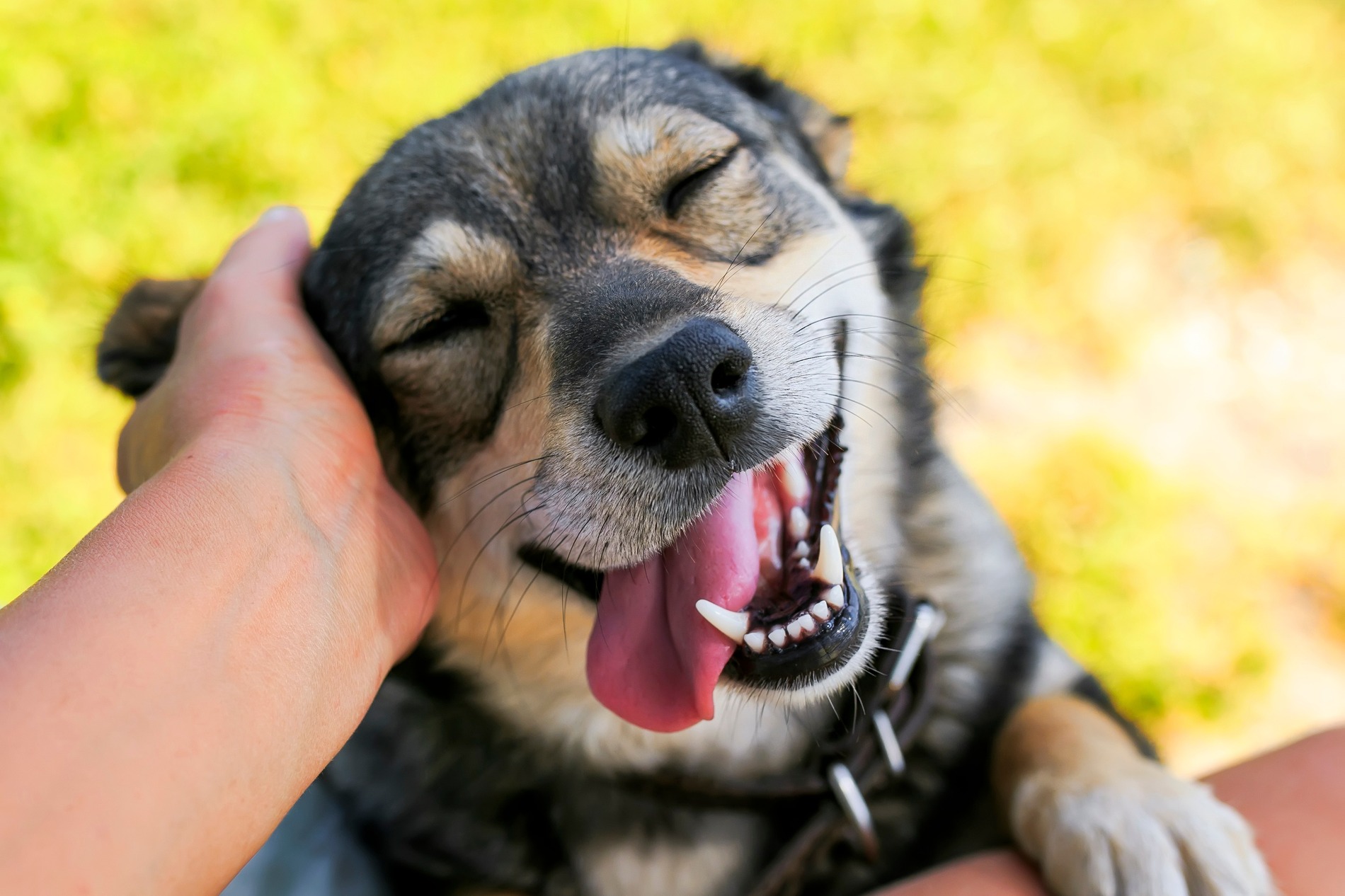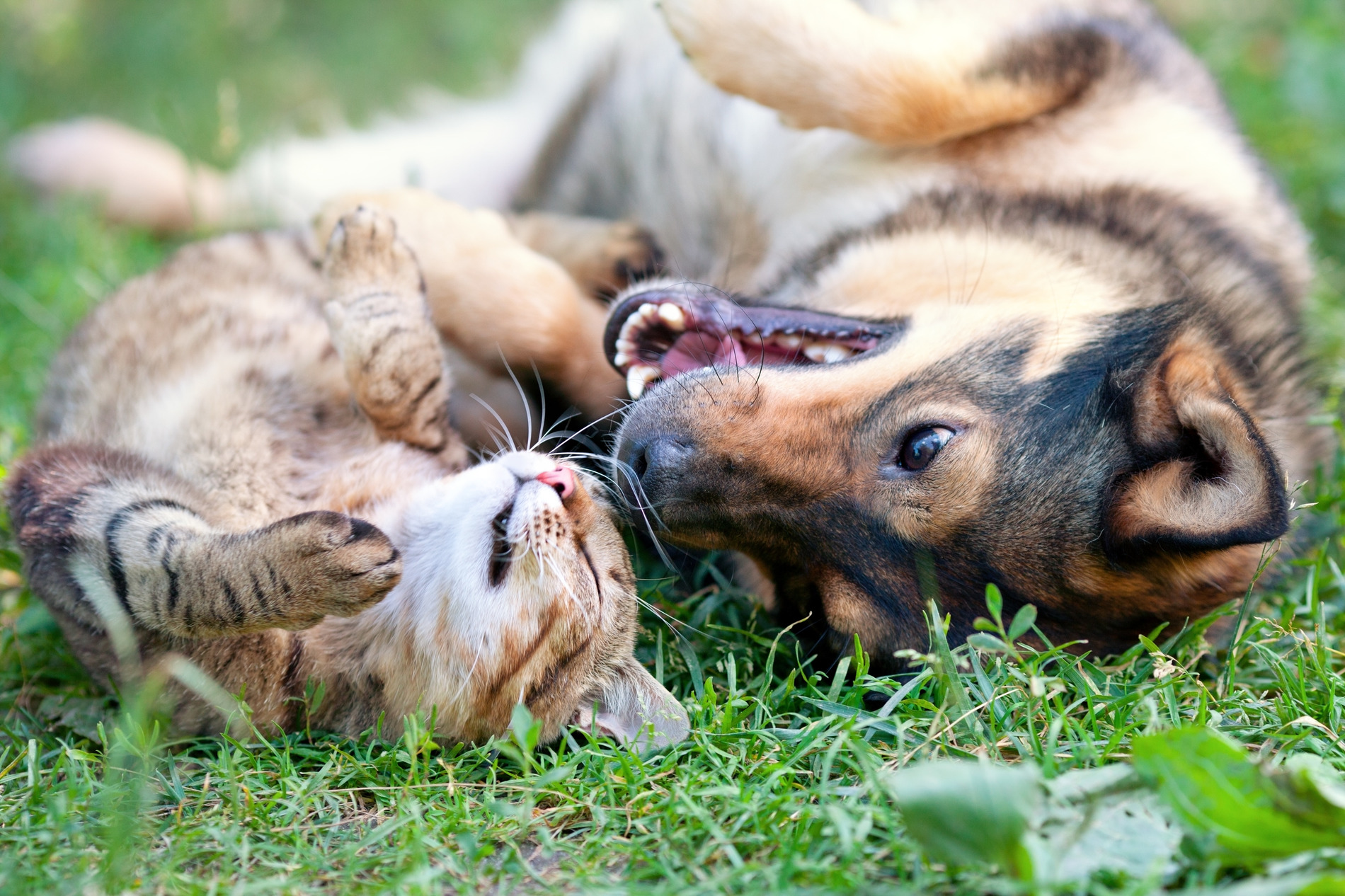
Pet Oral Surgery in Austin, TX
Keep Your Pet Thriving With Compassionate Dental Care
Your pet’s smile is more than just cute—it’s a key part of their overall health. At Meow Bark Veterinary, we provide expert pet oral surgery in Austin, TX, with a commitment to compassionate, fear-free care for both cats and dogs. Whether your furry friend needs a routine dog tooth extraction or more advanced cat dental surgery, our team is here to help them feel better, faster. Located in Goodnight Ranch and led by Dr. Brian Hayes and Dr. Erica Lozoya, we offer the latest in veterinary dental care with a neighborly touch.
What Is Veterinary Oral Surgery, and When Is It Necessary?
Pet oral surgery encompasses a range of procedures that address serious dental conditions in cats and dogs. This includes treatment of gum abnormalities, tooth extractions, and treatment of oral tumors. Surgery is typically recommended when pets suffer from severe periodontal disease, damaged or infected teeth, or growths inside the mouth that interfere with comfort or eating.

What Types of Oral Surgery Are Most Common for Dogs and Cats?
Common oral surgeries for dogs include:
- Dog dental extractions for broken or infected teeth
- Removal of retained baby teeth
- Oral mass removals
For cats, we often treat:
- Feline tooth resorption
- Chronic inflammation (stomatitis)
- Cat tooth abscesses or infected roots
These procedures help alleviate pain and prevent more serious health issues down the line.

How Do I Know If My Pet Needs Dental Surgery?
Pets can’t tell us they’re in pain—but there are signs. Watch for:
- Pawing at the mouth, excessive drooling, or bad breath
- Trouble eating or dropping food
- Bleeding gums, loose or broken teeth, or facial swelling
Routine wellness visits and dental X-rays at Meow Bark Veterinary help us catch issues early before they lead to discomfort or more invasive procedures.
What Should I Expect During My Pet’s Oral Surgery Consultation?
Your visit starts with a detailed dental exam and discussion of your pet’s health history. Once we have the full picture, we’ll walk you through the surgical plan, anesthesia process, and recovery expectations. Everything is explained clearly—so you feel confident moving forward.
How Is Anesthesia Used During Pet Oral Surgery?
All pet dental surgeries are performed under general anesthesia to keep your pet pain-free and safe. Before surgery, we conduct pre-operative blood work and perform a thorough physical examination. During the procedure, we take dental X-rays to assess the health of teeth both above and below the gum line. Dental X-rays must be performed under general anesthesia in order to obtain thorough information regarding the health of the teeth. Throughout the procedure, we continuously monitor your pet’s heart rate, blood pressure, and oxygen levels. Our goal is to ensure the safest experience possible for your companion.
How Long Does Pet Dental Surgery Take?
Most pet oral surgeries last between 1 and 3 hours, depending on the severity of the dental disease. A single tooth extraction may be quick, while a full-mouth procedure or mass removal takes longer. After surgery, we’ll keep your pet for a short observation period to ensure they’re comfortable before going home.
What Is the Recovery Process Like After Animal Dental Surgery?
Post-surgical care is a crucial component of the healing process. You can expect:
- A soft food diet for 10-14 days
- Pain medications to ensure comfort
- An Elizabethan collar and reduced activity while your pet recovers
Most pets feel significantly better within 7–14 days. We’ll provide detailed aftercare instructions and let you know when a recheck is necessary. If you notice swelling, bleeding, or refusal to eat—call us right away.
Can Dental Issues Affect My Pet’s Overall Health?
Yes—untreated dental problems can lead to systemic health issues. Bacteria from the mouth can travel through the bloodstream and affect your pet’s heart, kidneys, or liver. Chronic dental disease can also cause significant pain that affects your pet’s quality of life. Addressing oral health is one of the best things you can do for your pet’s long-term wellness.
What Preventive Measures Can I Take to Avoid Dental Issues?
Preventing dental problems starts with:
- Annual or biannual professional dental cleanings
- At-home brushing or dental treats
- Specialized diets for dental health
- Regular checkups at Meow Bark Veterinary
- For a complete list of effective at-home care, please visit https://vohc.org/accepted-products/
These steps go a long way in avoiding the need for surgery down the road.
How Much Does Pet Dental Surgery Cost in Austin, TX?
The cost of pet dental surgery varies depending on the number of teeth affected, the severity of the issue, and whether additional treatments, such as gum treatments or mass removals, are required. A simple dog tooth extraction may be lower in cost than a complex cat oral surgery. To get an accurate estimate, we recommend scheduling a consultation with our team.
Why Choose Meow Bark Veterinary for Pet Oral Surgery in Austin?
- We’re rooted in the Goodnight Ranch community, offering care that feels local and personal.
- Our fear-free philosophy helps minimize anxiety for both pets and owners.
- We use advanced dental diagnostics to ensure precise, effective treatments.
- Dr. Hayes and Dr. Lozoya treat every pet like their own—with expertise and compassion.
We believe your pet deserves more than routine care—they deserve a team that genuinely cares.
Secure Your Pet’s Path to Wellness

Schedule Your Pet’s Oral Surgery in Austin, TX!
At Meow Bark Veterinary, we take pride in providing expert oral surgery for dogs and cats in Austin, TX. If your pet is experiencing dental pain or needs a trusted team for ongoing veterinary dental care, we’re here to help. Call today or book online to schedule your pet’s oral surgery consultation!